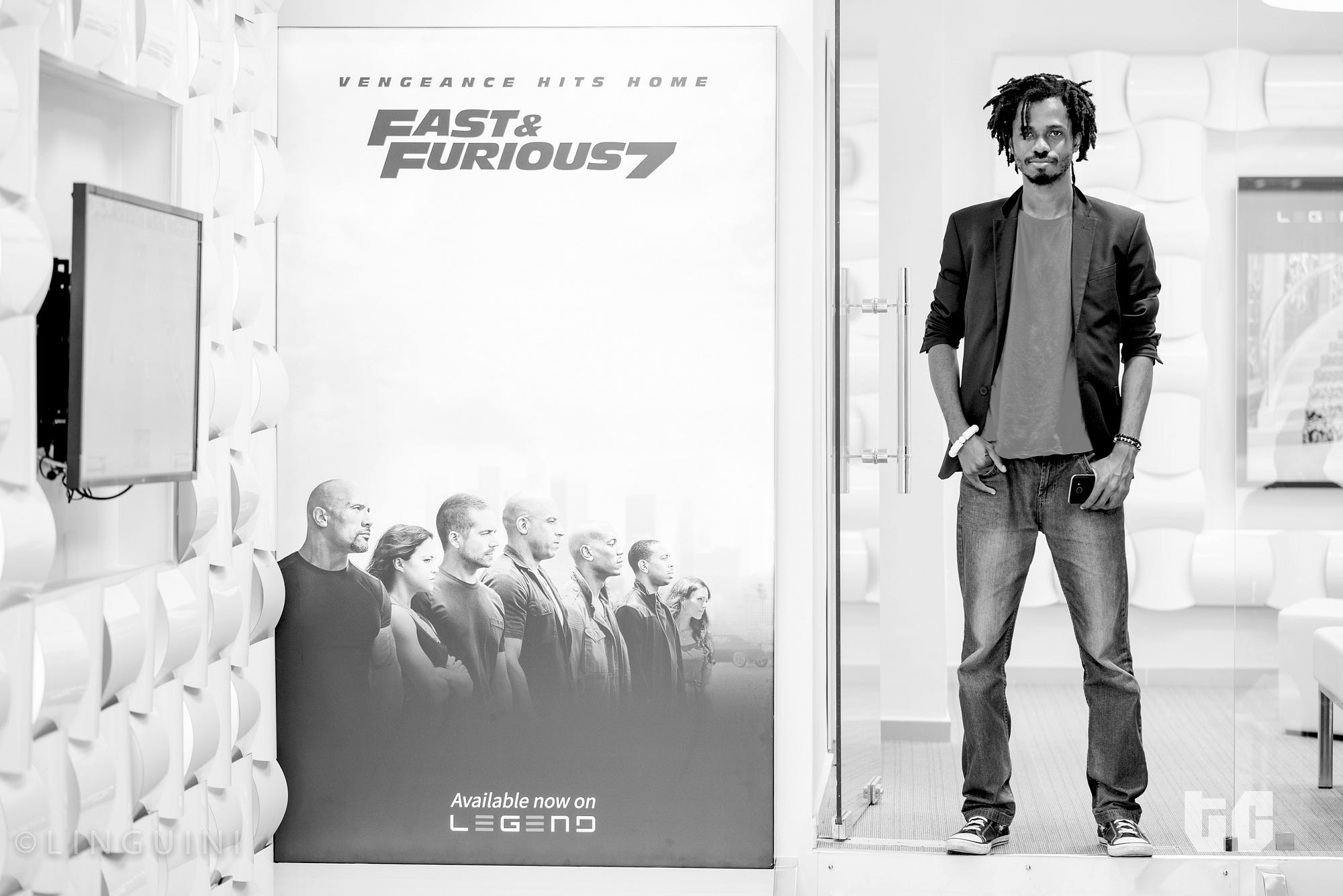
For a much better reading experience, you should go read this story on Medium. If you’re too lazy to click that link, read on.
[separator type=”thin”]
I was in the middle of Snapchatting from Legend’s offices in Abuja when a phone call from a Snapchat friend tried to come in. I couldn’t pick up, for obvious reasons. 30 seconds later, they sent a Snapchat DM.
When is this coming to Lagos?
“This” refers to Legend, a service that provides content, fibre-optic internet and voice calls in one package. Osarumen described Legend as what would happen if Netflix became your Internet service, voice call, and smart home security provider. If you know how Comcast in the US (or Sky in the UK) works, you’ve got the right idea.
The question was ironic, because this sort of thing typically goes to Lagos first. Legend, on the other hand, launched in Nigeria’s Federal Capital Territory, going against the grain of conventional wisdom which prescribes that consumer technology offerings are launched first in Lagos, the economic capital, and THEN there might be plans to expand to Abuja, Port Harcourt, blah blah…
This was precisely why when Legend rolled out a few months ago, I was vaguely aware, but wasn’t particularly motivated to learn more. Out of sight, was out of mind, and that was that. At least until the people at Legend reached out to ask me if I would come visit their experience centre in Maitama. I hadn’t been to Abuja in two years, and there were a couple friends there I’d been wanting to hang out with for a while. So I went.
I didn’t go alone, though. I reached out to Busayo, a photographer to help me capture the experience, and spare you my amateur Instagram photos. But somehow it turned into a three-man squad, because Opemipo found out via my Snapchat that I was going to Abuja and asked to come along. Merry (I don’t know why he calls himself that) likes to do random things, like use his geek colleagues as guinea pigs for a newfound cocktail mixing hobby, so having him along couldn’t hurt.
[separator type=”thin”]
A few minutes past 11am. We were behind schedule because from the airport, we made a pit stop at Busayo’s house close to Jabi, and his sister had proceeded to feed us pancakes till we nigh couldn’t move.
The “people” at Legend that invited me over consisted mostly of Gabriel Gab-Umoden, whom I knew from when he used to work at Konga.com. He’d left the ecommerce startup to become Legend’s Chief Marketing Officer. When I first met Gab, he used to do shirtsleeves and jeans. These days, as an Abuja “big man” (literally), kaftans are apparently his new wardrobe staple.
ab was waiting for us at Saffron Cafe, ostensibly to have coffee first. But actually to give us a feel of one of the Wi-Fi hotspots Suburban has distributed all over the city, in restaurants, bars, malls, and other places that attract foot traffic.
“People don’t want internet”, said a similarly kaftan-ed Suleiman Arzika, Suburban’s COO — Suburban is Legend’s parent company.
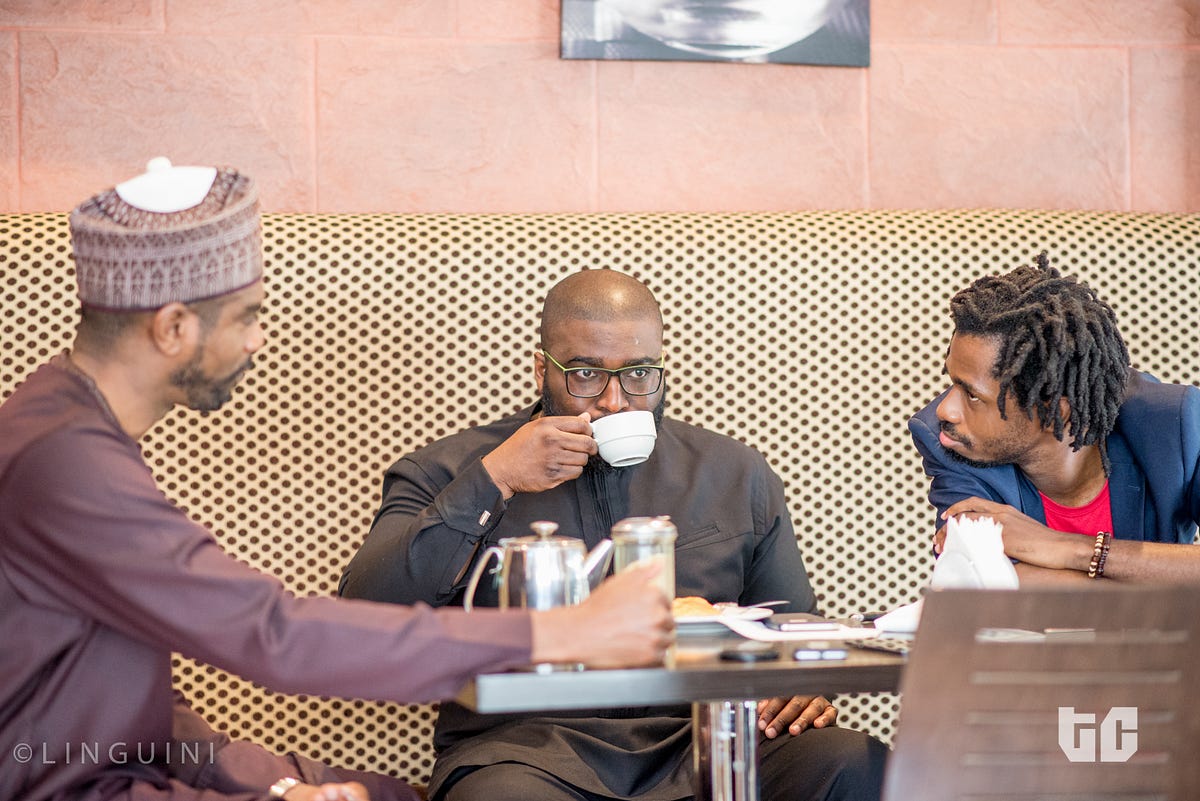
“What people really want is content. Broadband is simply the pipe that allows them access it. We try to emphasise the experience of consuming content over how many Mbps people feel they are getting.”
Well, it certainly did not hurt that the connection was superb— and I’m not talking about quality measured measured in Mbps. Gadgets respond differently to different connection qualities. We are subscribed to MTN’s Hynet 10Mbps connection in my office in Lagos. It is decent on most days. But there’s an annoying lag whenever the Slack app updates on my phone. The funny thing is that this lag was not apparent to me until I connected to Legend Wi-Fi, with its advertised speed of 8Mbps at the top end, and saw a lag-less stream of Slack updates. Like megapixels, Mbps as a proxy for broadband speeds will probably soon become obsolete.
The Wi-Fi hotspots serve a dual purpose. Their presence markets the Legend offering to a demographic that is likely to be interested in consuming digital content — raise your hand if you’re one of those people who instinctively sniff out free wifi in public places.
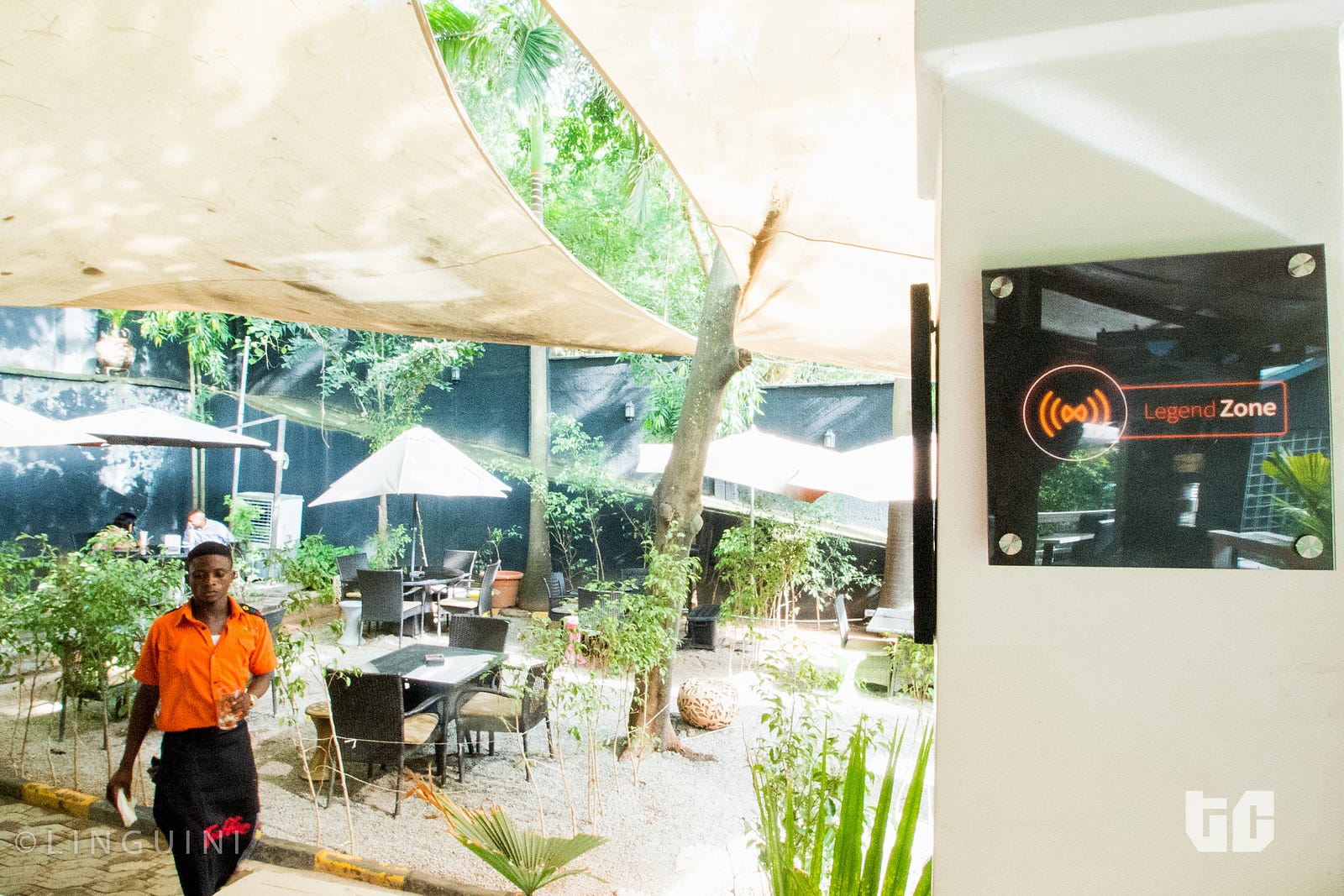
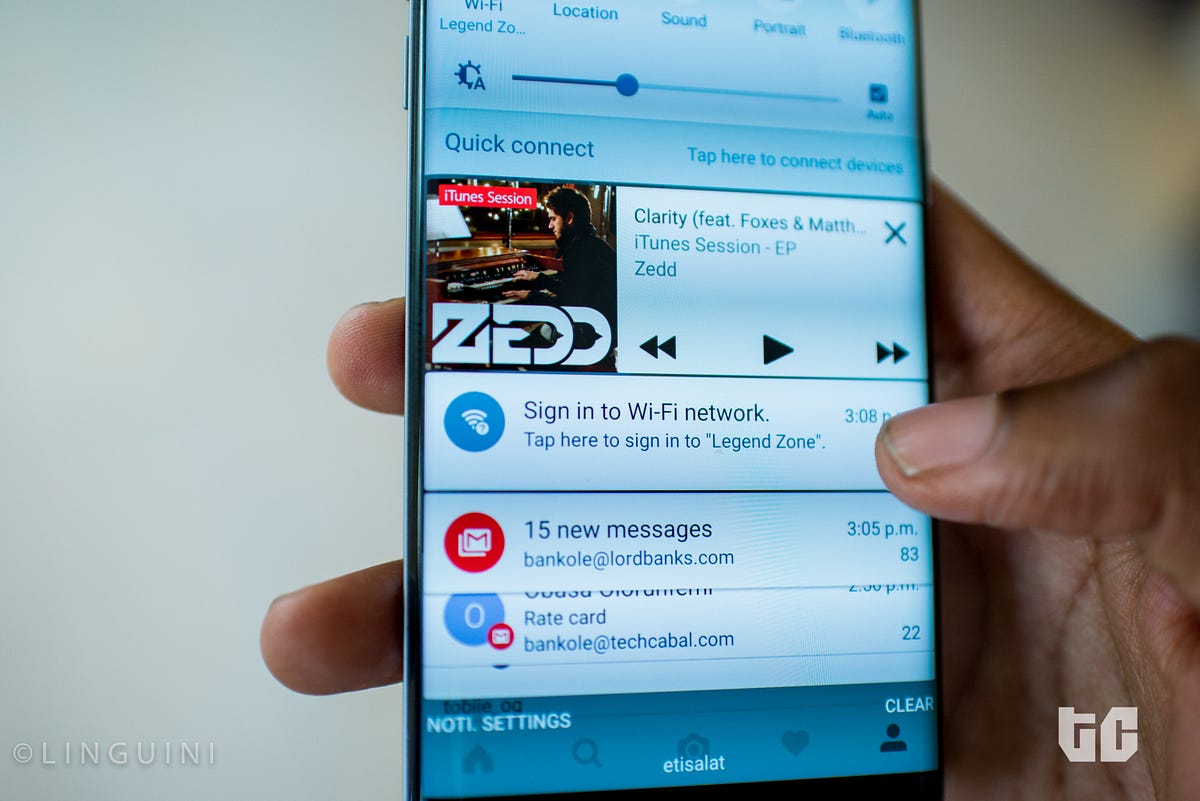
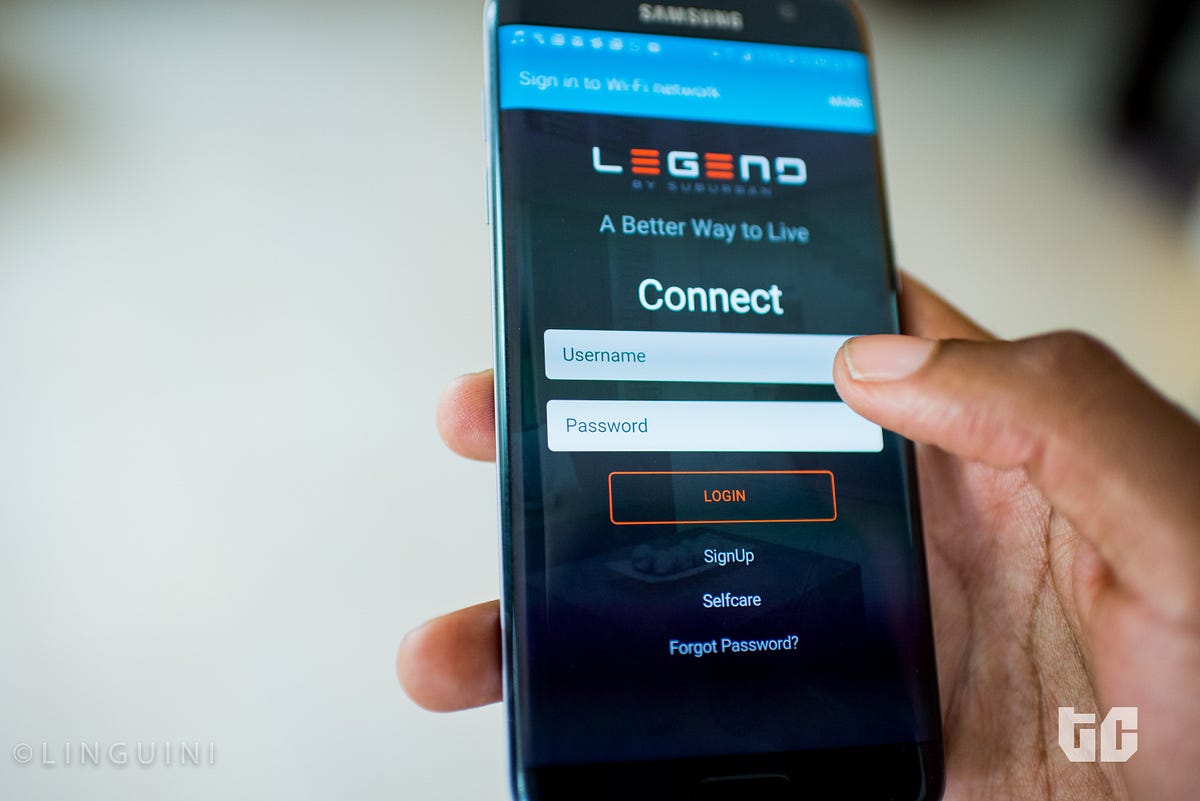
The other purpose is to extend the Legend experience from outside the houses or buildings in which they are installed. If Legend covers enough of the city with Wi-Fi hotspots, a Legend subscriber would in theory not need mobile data…in theory, folks.
[separator type=”thin”]
It’s a spaceship
Legend’s experience centre is clean. Like spaceship clean.
A few blocks away from Saffron Cafe, the Legend experience centre is ensconced within a nondescript complex that houses a number of unremarkable businesses. Compared to everything else in that building, stepping into Legend’s piece of it felt like I’d stepped into a Star Trek turbolift and been deposited onto the holodeck of the Enterprise.
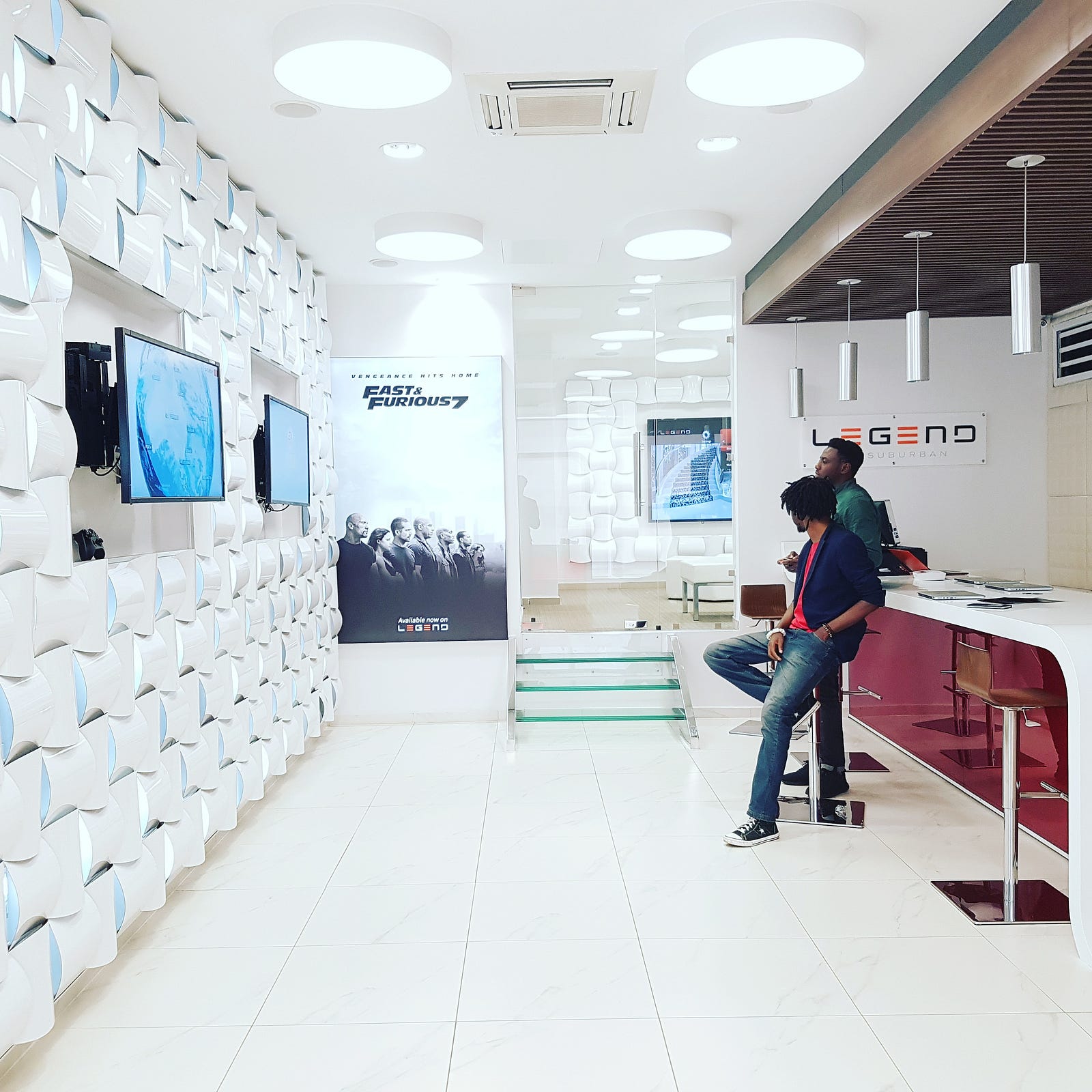
Those walls. Those lights. Makes me wonder what they’d do with a whole building.
Suburban’s CEO, Bruce Ayonote, was out of the country, and couldn’t receive us himself. But Aisha Abdulaziz, who heads customer experience gave us a tour, the technical breadth of which I imagine would have rendered him an awestruck spectator anyway. Asides the broadband, content and calls, Legend also provides some nifty home automation possibilities that for some weird reason aren’t advertised on their site, but seem to be reserved for people who walk into the experience centre. Remote video monitoring capabilities? Check. Remotely enable or disable your home security systems? Check. Regulate the lights and temperature. That too.
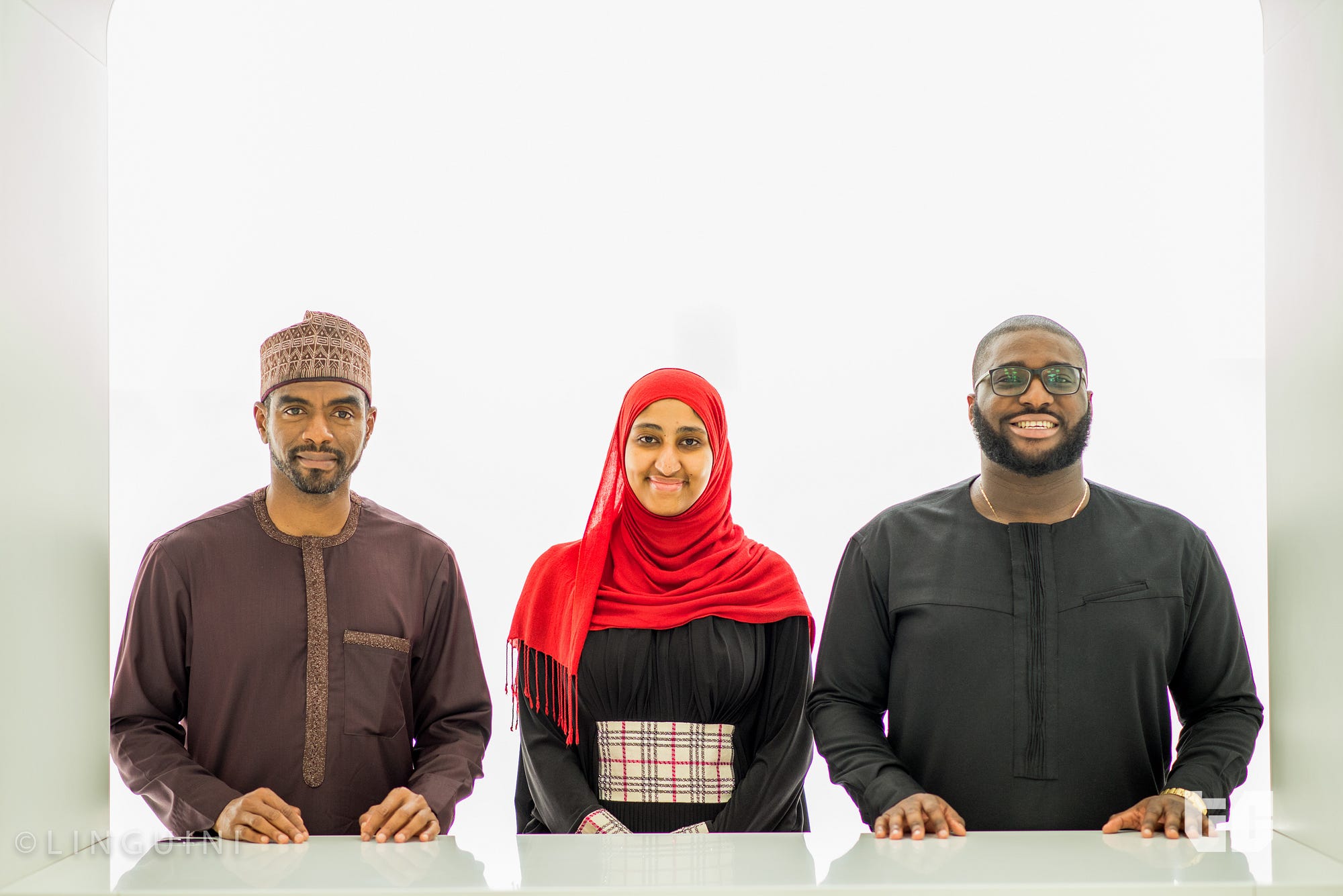
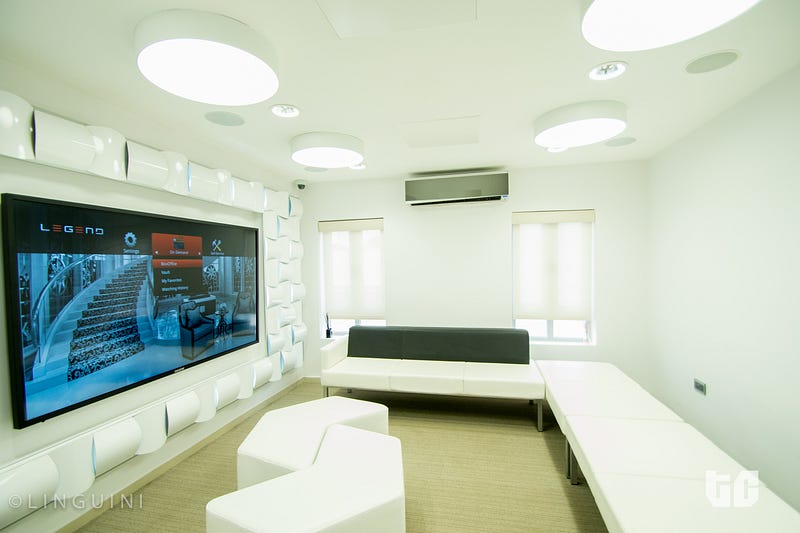
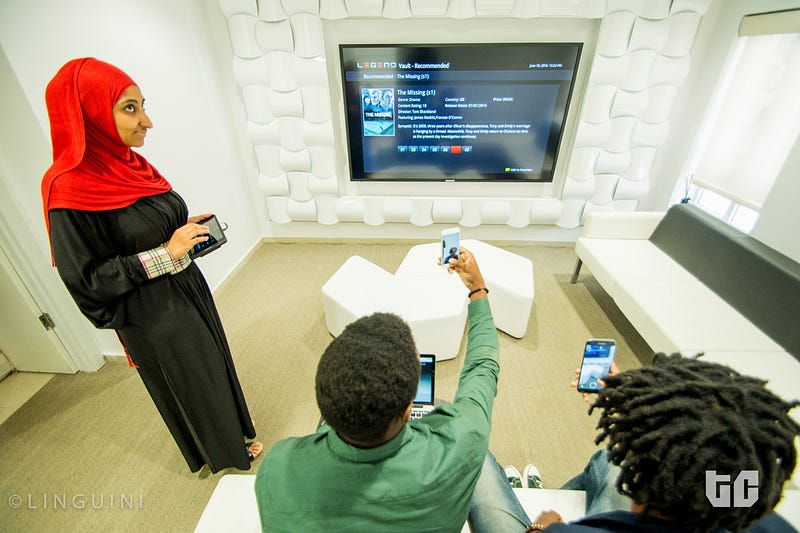
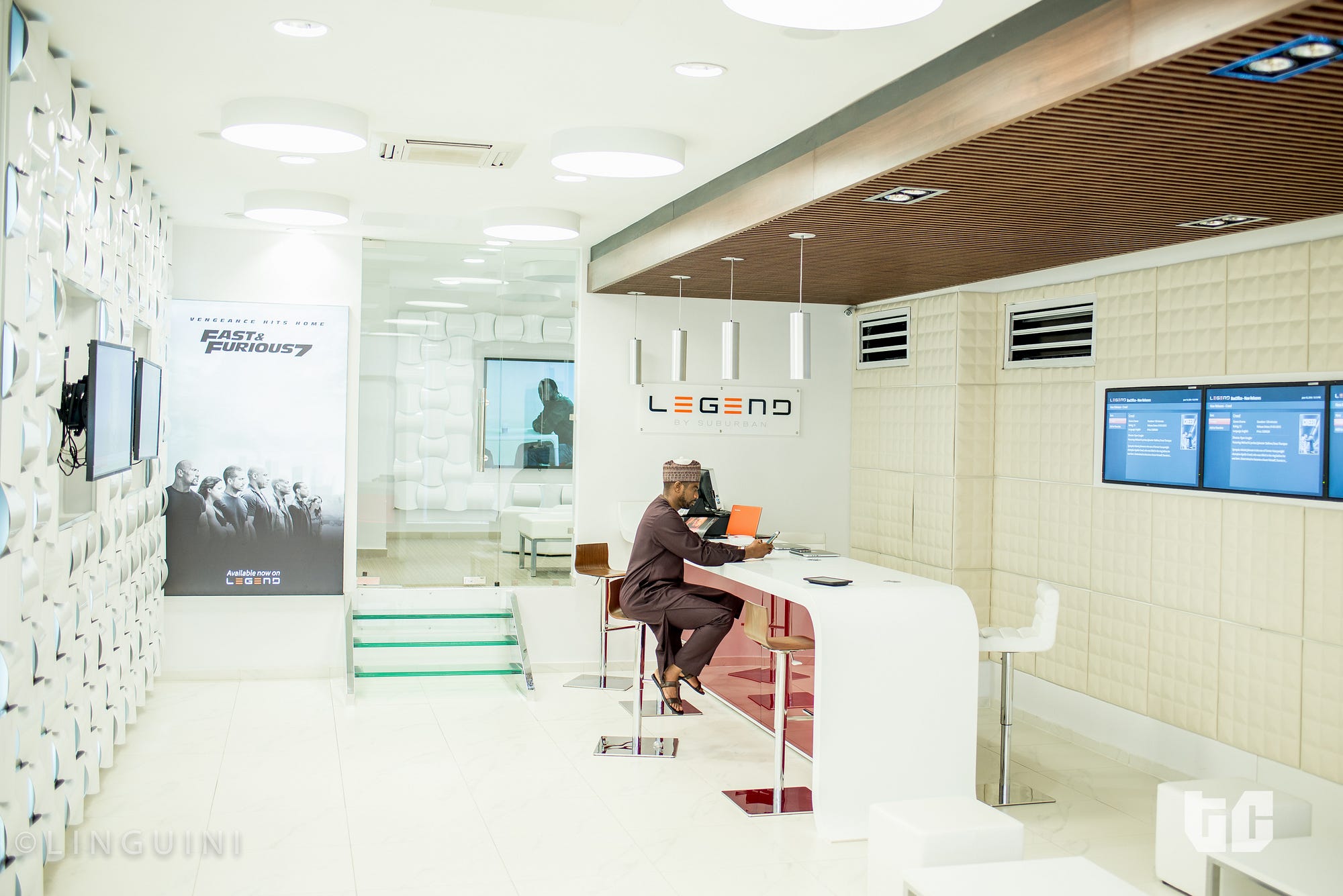
So, let’s say you walk into a Legend experience centre and demand that they hook you up with super fast internet, on-demand HD content and/or voice calls (you can choose between triple or double play bundles), what happens? Well, first of all, they have to determine whether there’s Legend coverage where you’re located. If they’ve got something called a Fibre Access Terminal in your locale, you’re in luck. If not, you will have to pay a one-off deployment fee that will allow them to set up the FAT as close to you as is necessary.
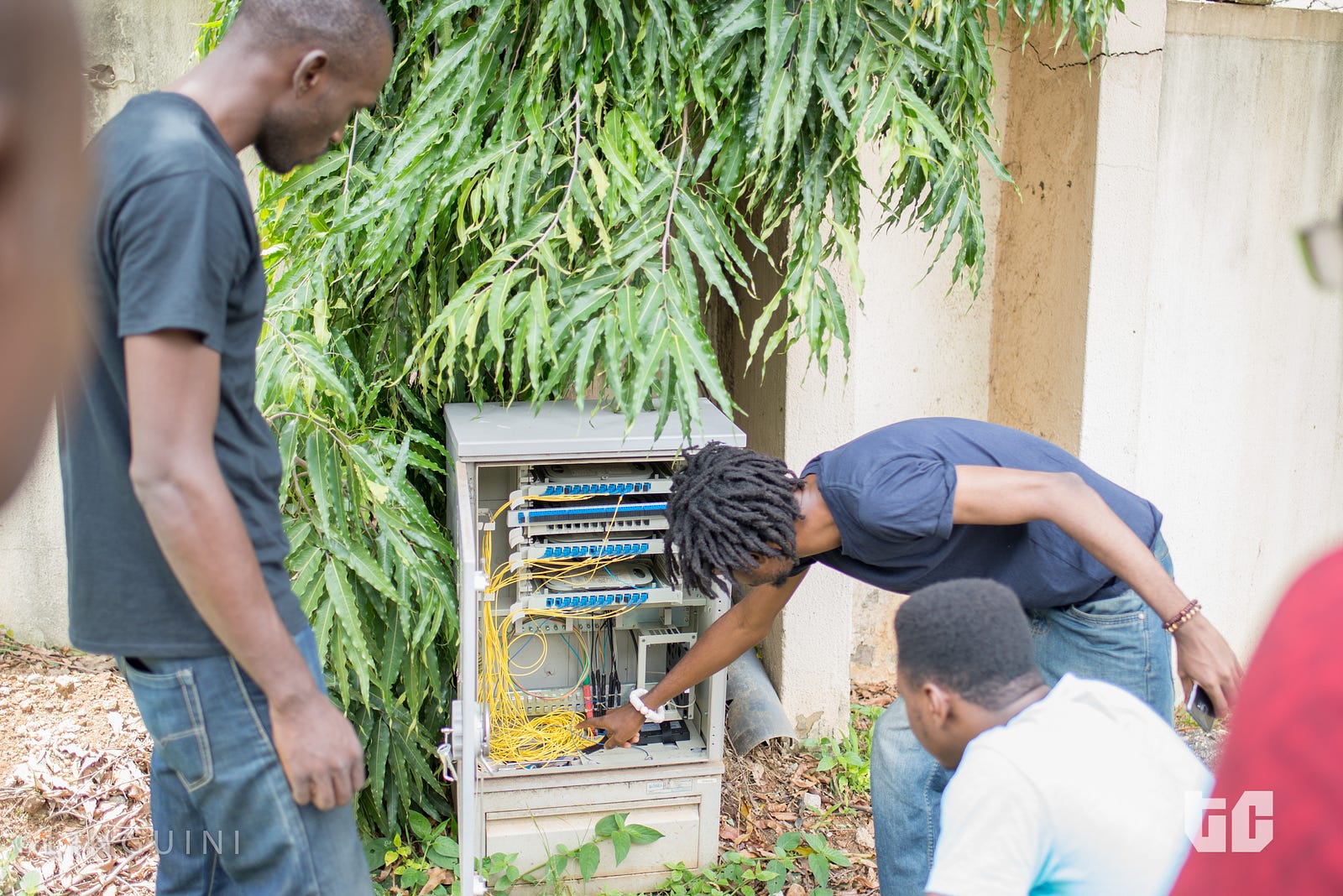
Mr. Sanusi Malgwi, a senior network engineer at Legend was kind enough to explain how the main backbone is pulled from under the ground into these Fibre Access Terminals which house “splitters” that essentially split the main connection into smaller cables that are then piped down manholes and pulled up into your house.
Whatever the case, once Legend has determined what needs to be done, they send in an “Installer” to make it happen.
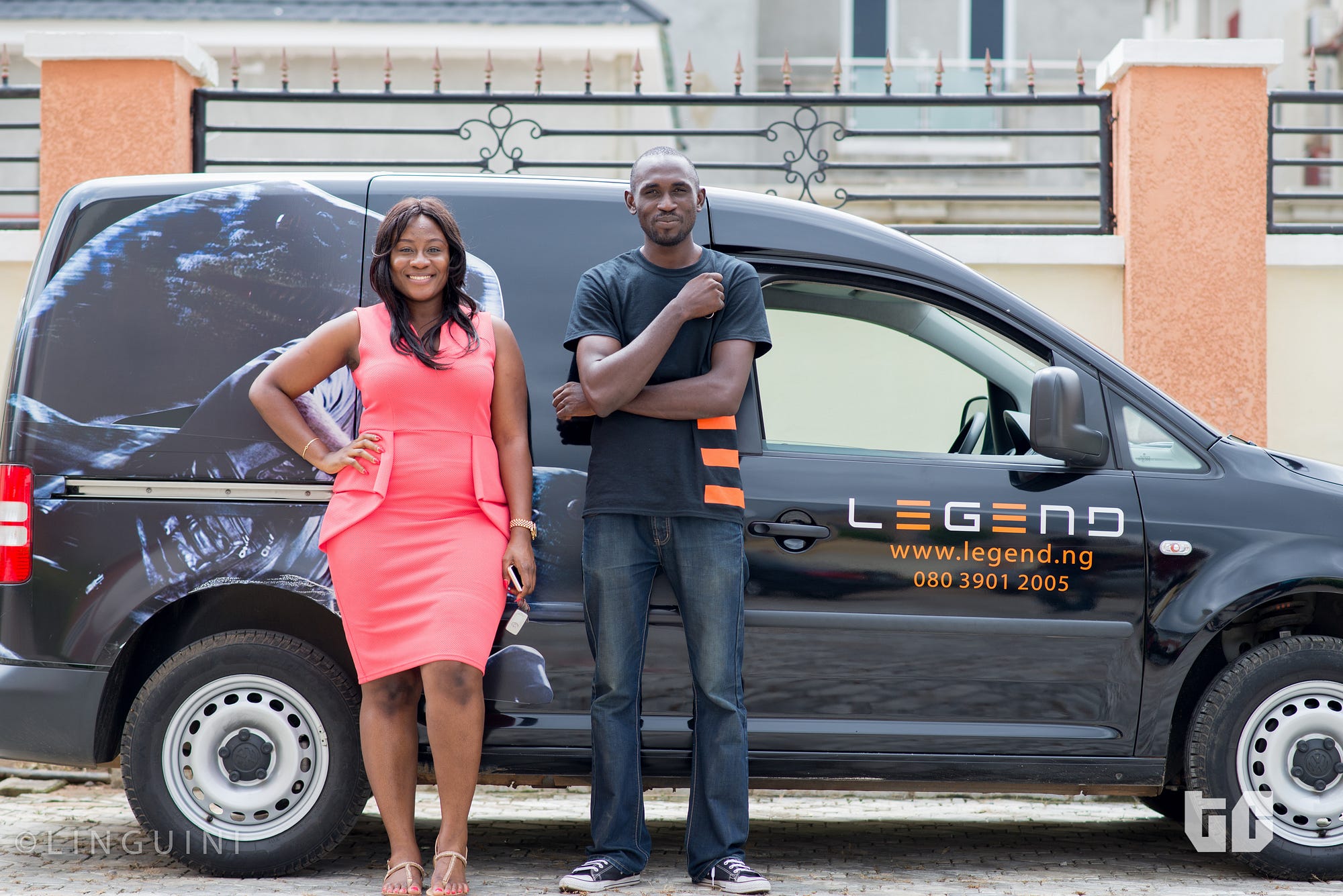
Legend installers are interesting because they technically aren’t Suburban’s staff, but rather are independent contractors who have been trained to deploy and maintain Legend infrastructure, and are entrepreneurs in their own right.
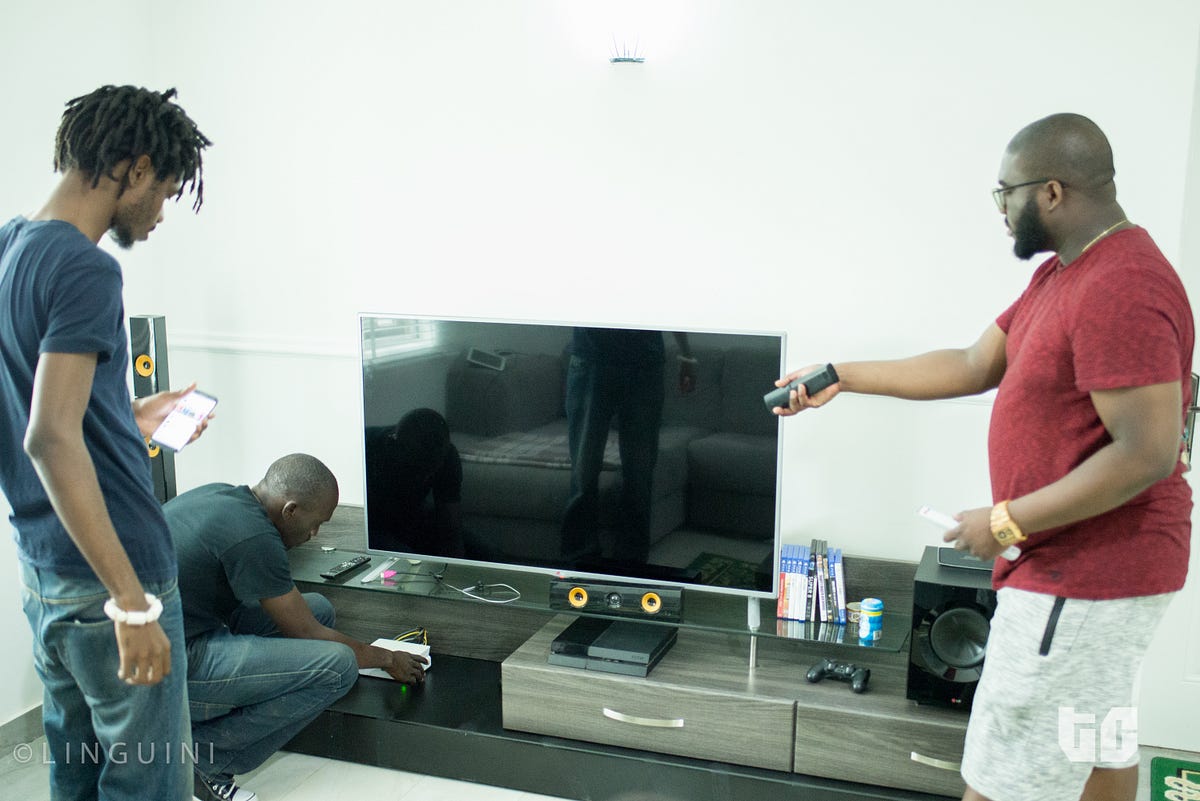
Once the fibre is in your building, it gets connected to an Optical Network Terminal box, which doubles as a router and an access point to which you can hook up other routers, if you choose. You can connect your devices directly to the ONT, but you’ll mostly want to use it’s router function to broadcast a Wi-Fi signal that the rest of your devices can connect to.
Simple, right? After all that geeking out, all that’s left to do is sit back, relax and enjoy.
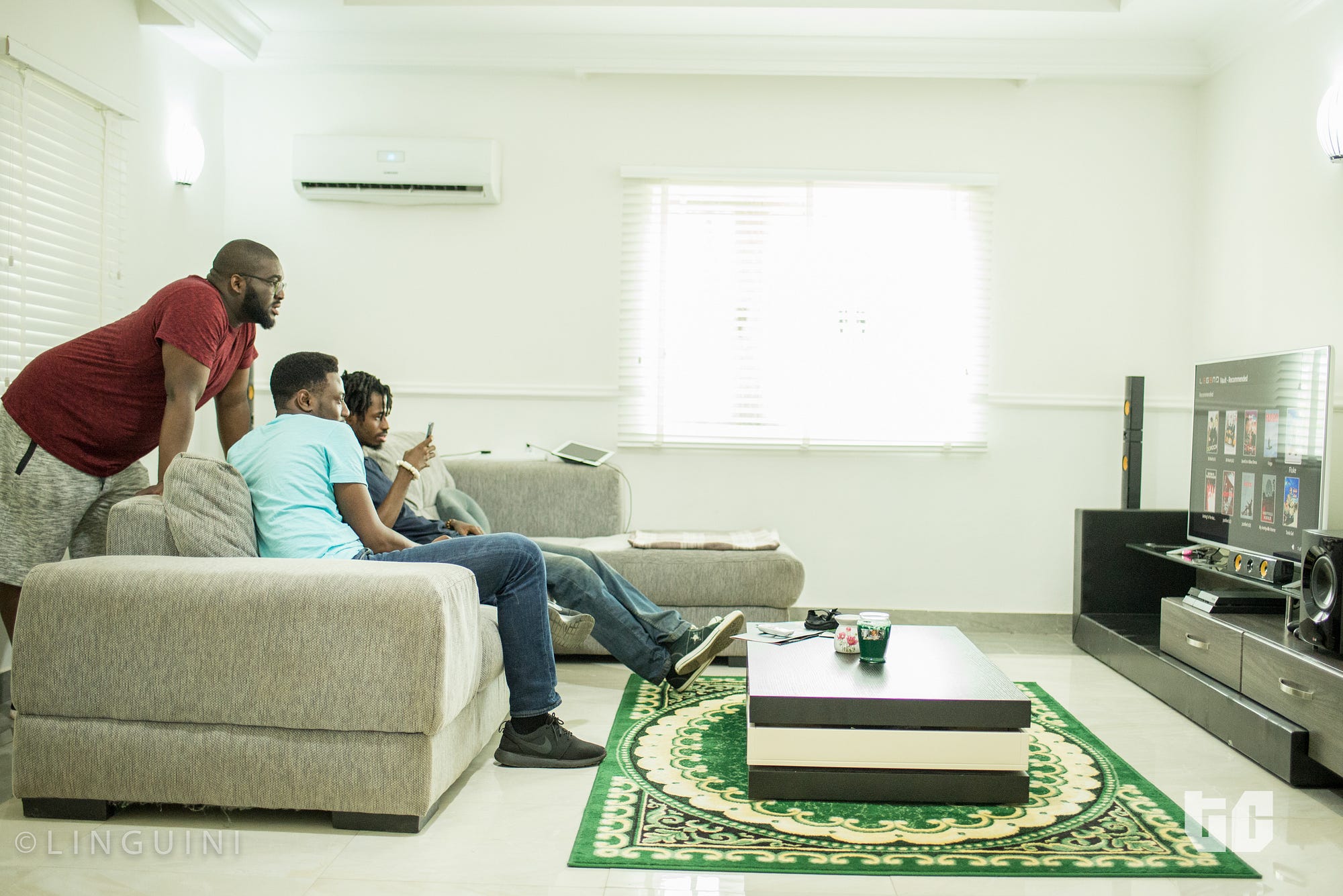
So, when is this coming to Lagos?
Seriously.
Legend is a product of Suburban FibreCo. Learning this solved the mystery of how Legend is able to deliver fibre-optic connections right inside people’s homes. Suburban is a 17 year old company, and has had quite a while to set up the groundwork, way before the concept of Legend was even conceived. Legend is in fact a product that takes advantage of years of investment in deploying a robust fibre network that spiders across the breadth of Abuja. The logic for launching there first, and not in Lagos now thoroughly makes sense.
Gab thinks that Legend could come to Lagos as soon as December 2016. But it’s not a promise I can hold him to, because he made it on Snapchat, and it’s long gone. The real question here is if Suburban can replicate the broadband infrastructure that Legend is built on in Lagos, and how quickly they can do it. Till then, Lagos people will have to wait.
[separator type=”thin”]
Writing: Bankole Oluwafemi. Photography: Busayo Longe. Random bants and waka pass: Opemipo Aikomo. Editing: Osarumen & Tola.
Disclosure
Logistics and travel costs were covered by Suburban.


















